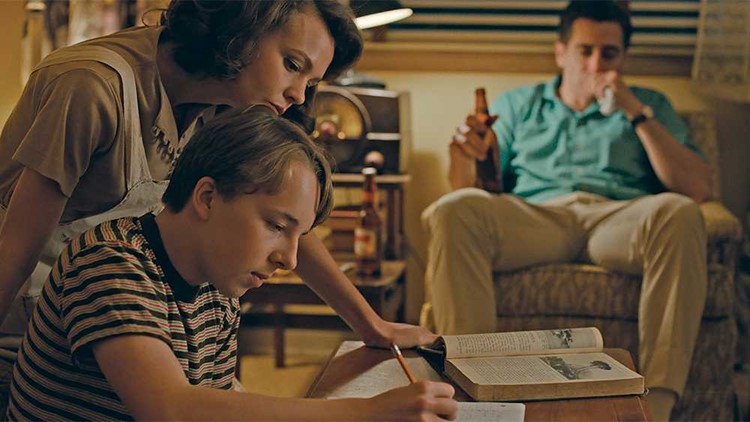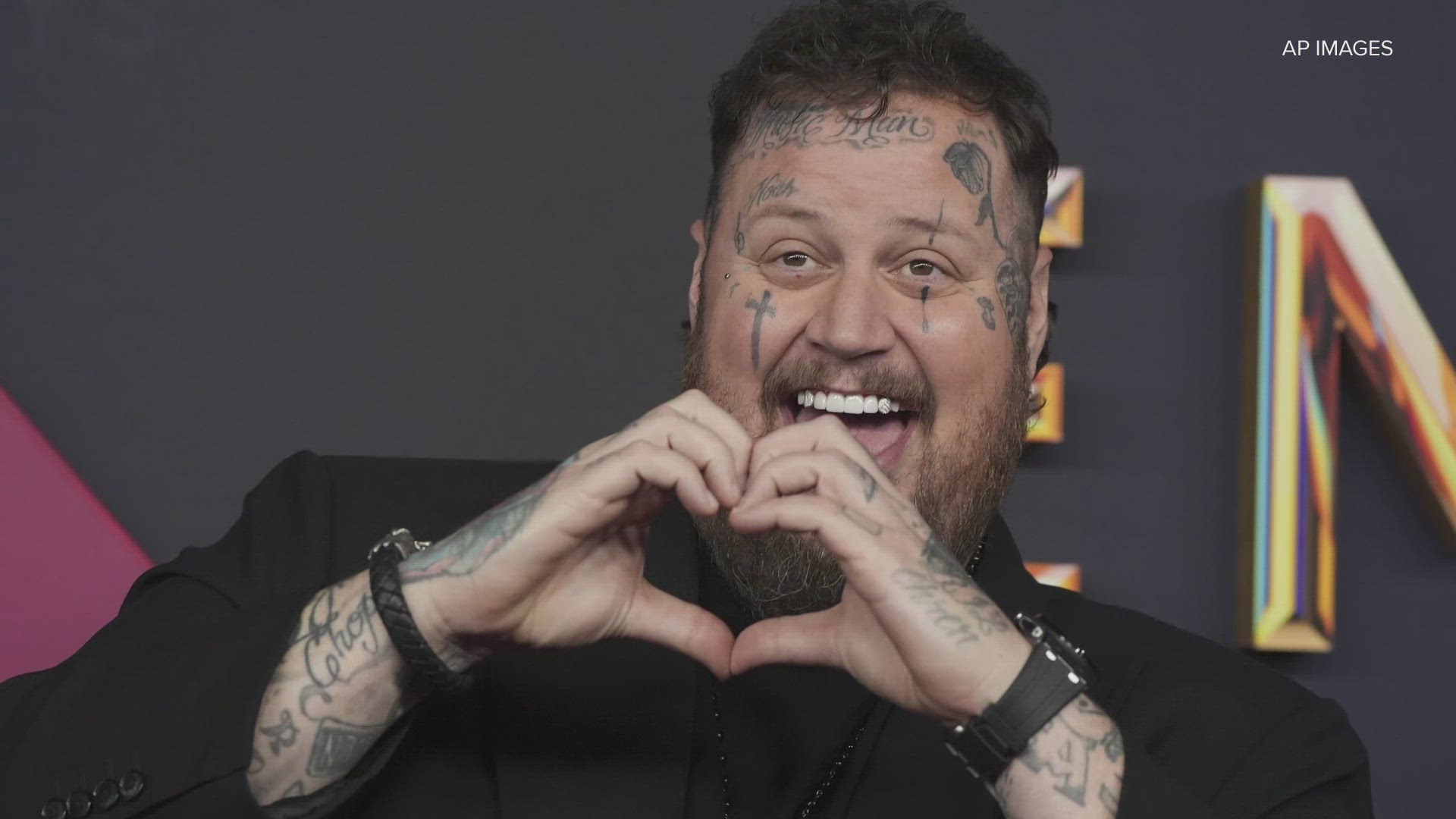"What happens to the animals out there during a wildfire?"
"They adapt, I suppose. The little ones get confused and burn up. I used to cry about it when I was a little kid. My father said that didn't help anything."
This is a conversation between Joe (Ed Oxenbould) and his mother, Jeannette (Carey Mulligan), as they drive by a massive fire up in the hills of Montana, where Jeannette's husband and Joe's father, Jerry (Jake Gyllenhaal), has left the family to help fight. For the Brinson family, Montana may hold their house, but it's far from their home. For this family, home is merely a state of mind.
Wildlife is Paul Dano's first film, but you wouldn't know it by the sharp and assured eye he shows behind the camera and the weathered wit coming out of his characters' mouths. Working from a script he wrote with his real-life wife (fellow actress Zoe Kazan, so good in last year's The Big Sick), Dano fancies his characters fractured and the area around them full of gray matter and open possibility, so that heartbreak can walk in and make itself comfortable.
When Jerry is fired from his job as a golf course grounds crew leader and runs off into the hills to fight flames, it doesn't just tear open the family's financial situation, but rips open the seams of the family dynamic, slowly unearthing hidden desires in his Jeannette and the ambition of young Joe. As Jeannette goes looking for a job while keeping her eyes open for a new life, Joe gets a job at a photography store that starts to give him a new outlook on life-but will it help his loosening grip on his home life.
Wildlife is a simple film with layers of tucked away meaning and objectivity which aren't too hard to decipher if you don't mind the cold touch of cynical morals. You don't have to be a parent in order to catch the drift of the waves Dano is pushing in your direction. If you had a parent or parents at home, a lot of this film should resonate. As Jeannette tells Joe in a candid conversation, "it's nice to know your parents before they were your parents." As Joe sees his guardians in life break apart, he is forced to understand and comprehend life at a rapid rate. The end of innocence comes much faster this way.
I loved Mulligan in this film. Everything about the performance comes off as assured and expert given the character's place in this film's world. The smoky yet earthy voice. The deliberate yet convincing change in her actions as the plot develops. This is the kind of role that sneaks up and floors you, because there's little pretense and showmanship. It's not makeup, latex, or a large "look at me" commanding speech that grabs your attention. It's almost as if Mulligan isn't playing a part, but that she had Jeannette hidden in her own body all this time. You may not always agree with the decisions Jeannette makes, but Mulligan makes you respect them. She's on a short list this year.
Gyllenhaal only struggles to not give a good performance these days, and he fits nicely into Jerry's flawed skin. When he loses his job, Jerry takes it as a shot to his pride and allows it to upend his life, but that's only the initial outlook. With a limited part and lesser screen time than his two co-stars, Gyllenhaal still keeps you invested in Jerry's fate. That's something not many actors could accomplish. Jerry is someone who casts himself onto an island without anyone's help, so seeing him try to find his way back is intriguing.
Oxenbould impressed me in M. Night Shyamalan's The Visit, but here Dano allows him to stretch a bit more. Joe isn't some wide-eyed and innocent kid forced to grow up fast; Oxenbould gives him a few shades of complexity, so his reactions to certain events are original and not recycled. It's a solid performance from a kid who is only getting started. Like Isabela Moner in this month's Instant Family, I want to see more of this kid. He's got something.
Dano's camera work is superb here, because he finds unconventional ways to shoot rather simple imagery. He often lets the character dictate where the camera should go, focusing on their eyes and expressions instead of the object of their attention. In one scene where Joe lays his eyes on the fire, the camera doesn't just jump-cut to the large, engulfing flames, instead staying on the kid's eyes for a little while. The restraint and understated "give me a minute" approach from Dano is refreshing for a period film. The film may take its time in certain spaces, but he makes it worth the wait with a sublime ending.
When two adults have trouble in their marriage, whether it's ego or financial related, the child can burn up in the fire. Other times, the heartbreak can only light a fire inside that young individual and force them to grow into the real adult of the family. In other words, they adapt. Isn't that how we all truly resist getting lost in this chaotic world? We adapt.
Paul Dano is a fine actor, but he may end up being a better director. If Wildlife is his first offering, I can't wait to see what comes next.



